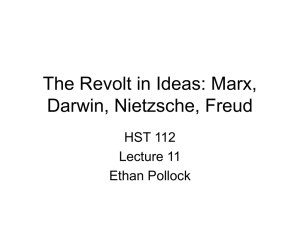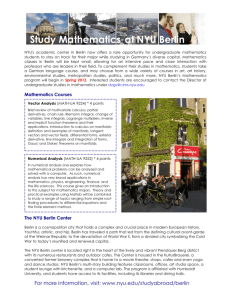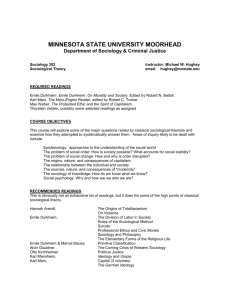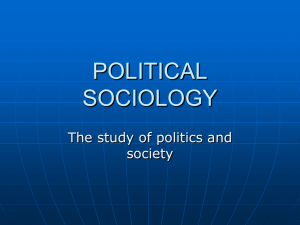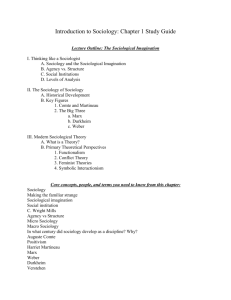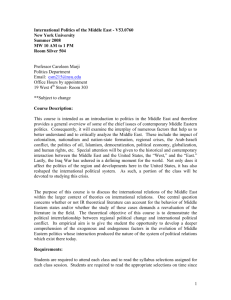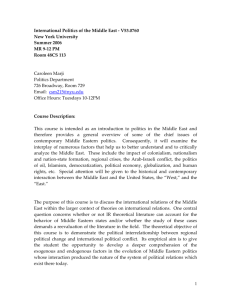NYU Berlin An affiliate of New York University Part
advertisement
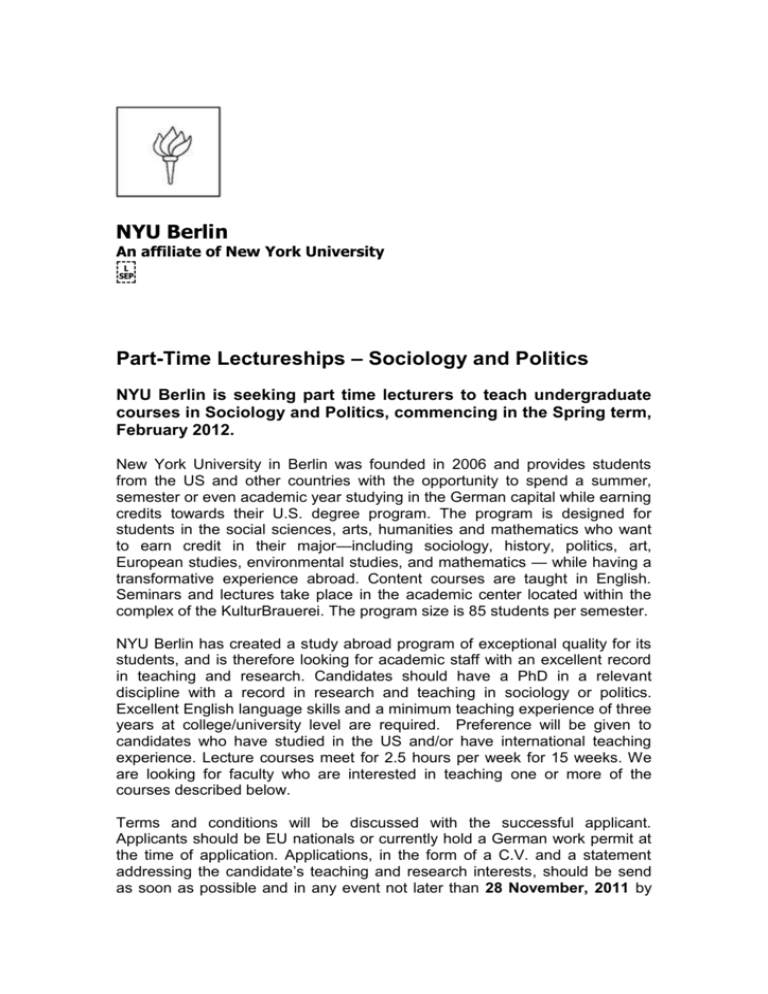
NYU Berlin An affiliate of New York University Part-Time Lectureships – Sociology and Politics NYU Berlin is seeking part time lecturers to teach undergraduate courses in Sociology and Politics, commencing in the Spring term, February 2012. New York University in Berlin was founded in 2006 and provides students from the US and other countries with the opportunity to spend a summer, semester or even academic year studying in the German capital while earning credits towards their U.S. degree program. The program is designed for students in the social sciences, arts, humanities and mathematics who want to earn credit in their major—including sociology, history, politics, art, European studies, environmental studies, and mathematics — while having a transformative experience abroad. Content courses are taught in English. Seminars and lectures take place in the academic center located within the complex of the KulturBrauerei. The program size is 85 students per semester. NYU Berlin has created a study abroad program of exceptional quality for its students, and is therefore looking for academic staff with an excellent record in teaching and research. Candidates should have a PhD in a relevant discipline with a record in research and teaching in sociology or politics. Excellent English language skills and a minimum teaching experience of three years at college/university level are required. Preference will be given to candidates who have studied in the US and/or have international teaching experience. Lecture courses meet for 2.5 hours per week for 15 weeks. We are looking for faculty who are interested in teaching one or more of the courses described below. Terms and conditions will be discussed with the successful applicant. Applicants should be EU nationals or currently hold a German work permit at the time of application. Applications, in the form of a C.V. and a statement addressing the candidate’s teaching and research interests, should be send as soon as possible and in any event not later than 28 November, 2011 by email to Dr. Gabriella Etmektsoglou (ge377@nyu.edu). Further information can be obtained informally by calling Dr. Gabriella Etmektsoglou at +49 (0) 30 290291 006. For more information about our program, please visit our website at: http://www.nyu.edu/global/global-academic-centers1/berlin.html. Description of the Courses Sociological Theory This course examines the nature of sociological theory and the value of and problems in theorizing. It provides a detailed analysis of the writings of major social theorists since the 19th century in both Europe and America: Tocqueville, Marx, Durkheim, Weber, Simmel, Freud, Mead, Parsons, Merton, Goffman, Habermas, Giddens, Alexander, and Bourdieu. Political Theory This course is an introduction to the history of political theory, covering many of the great texts of the Western tradition. These texts raise important questions about the nature of individual rights, the roots of government authority, the circumstances of legitimate revolution, the justification of religious tolerance, and the meaning of political ideals such as liberty, equality, and justice. Despite the age of some of the texts covered in the class, the purpose of the course is not exclusively historical. Instead, part of the reason that these texts are widely seen as classics is because they continue to shape, inform, and challenge the analysis of current political phenomena. It is through the categories created and clarified by these thinkers that we conceptualize, understand, and assess our political lives. Marx, Nietzsche, Freud This course introduces students to the work of Marx, Nietzsche, and Freud, three German-language authors who in different and decisive ways provided radically new understandings of economics, philosophy, and the psyche. Writing from the mid-19th century through the 1930s, the three thinkers placed their indelible stamps on reformulating modern notions of the state, the subject, knowledge, and the mind. The purpose of this course is to provide a comprehensive engagement with the writings of Marx, Nietzsche and Freud by bringing them into dialogue with each other. That is, rather than reading the three authors chronologically, the course is organized around six topoi – interpretation, history, subjectivity, politics, religion, and art – in which a paradigmatic text from each author is read. The seminar underscores their prevailing actuality and thereby strives to delineate the origin of much modern thinking.
